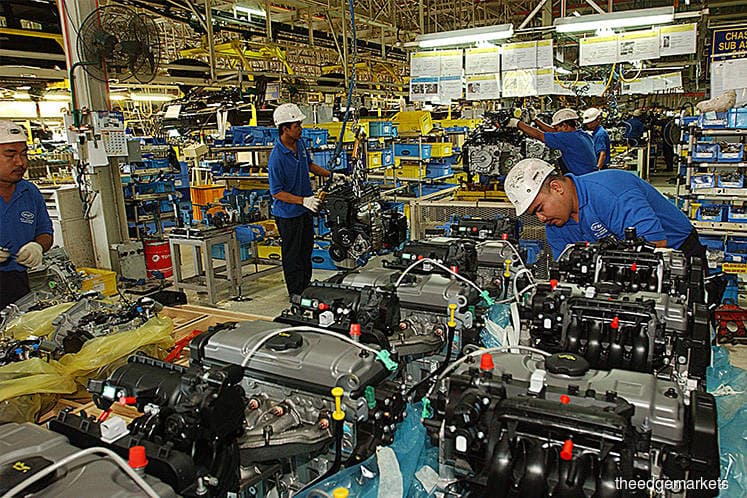
KUALA LUMPUR (Oct 1): Malaysian, Singapore and Indonesian manufacturing sector conditions deteriorated in September 2019, as the overall Asean industry continued to struggle, with latest data signalling a downturn for the fourth successive month, according to the IHS Markit Purchasing Managers' Index (PMI).
In a note today, IHS Markit said data broken down by country showed that the sharpest deterioration was seen in Singapore, alongside downturns in Indonesia and Malaysia.
It said, "Operating conditions in Indonesia continued to deteriorate, posting its second-lowest headline PMI figure (49.1) since July 2017 in September (behind August). Malaysia also saw operating conditions decline at a moderate pace, despite the headline index (47.9) reaching a four-month high. Meanwhile, Singapore reported a sharp downturn in the health of its manufacturing sector in September. The headline reading (43.1) was among the lowest in the series history (since August 2012)."
"The (Asean) headline figure rose from 48.9 in August to 49.1 in September, signalling a marginal deterioration in the health of the Asean manufacturing sector. Although the contraction eased from August, the latest headline PMI figure was the second-lowest since November 2015. Weighing on the index was the fastest decline in production since July 2017, and a back-to-back reduction in new orders," the global information provider said.
A reading above 50 indicates an overall increase compared to the previous month while a figure below 50 shows a decrease, IHS Markit said. Asean indices are calculated by weighting together the national indices.
Elsewhere across Asean, it said Myanmar, the Philippines Thailand and Vietnam registered PMI readings above 50.
Commenting on the latest survey results, IHS Markit economist Lewis Cooper said the Asean September PMI data highlighted further issues facing the region's manufacturing sector, as operating conditions declined for the fourth successive month.
"Companies signalled a back-to-back fall in new business, with output also decreasing. Consequently, employment contracted at the sharpest rate for nearly four years, and expectations towards future output became less optimistic.
"Although, the overall deterioration in the health of the sector was only marginal, the PMI fell to its second-lowest level since November 2015. Subdued demand appears to be a key factor weighing on growth, while inflationary pressures were muted in the context of historical data," Cooper said.